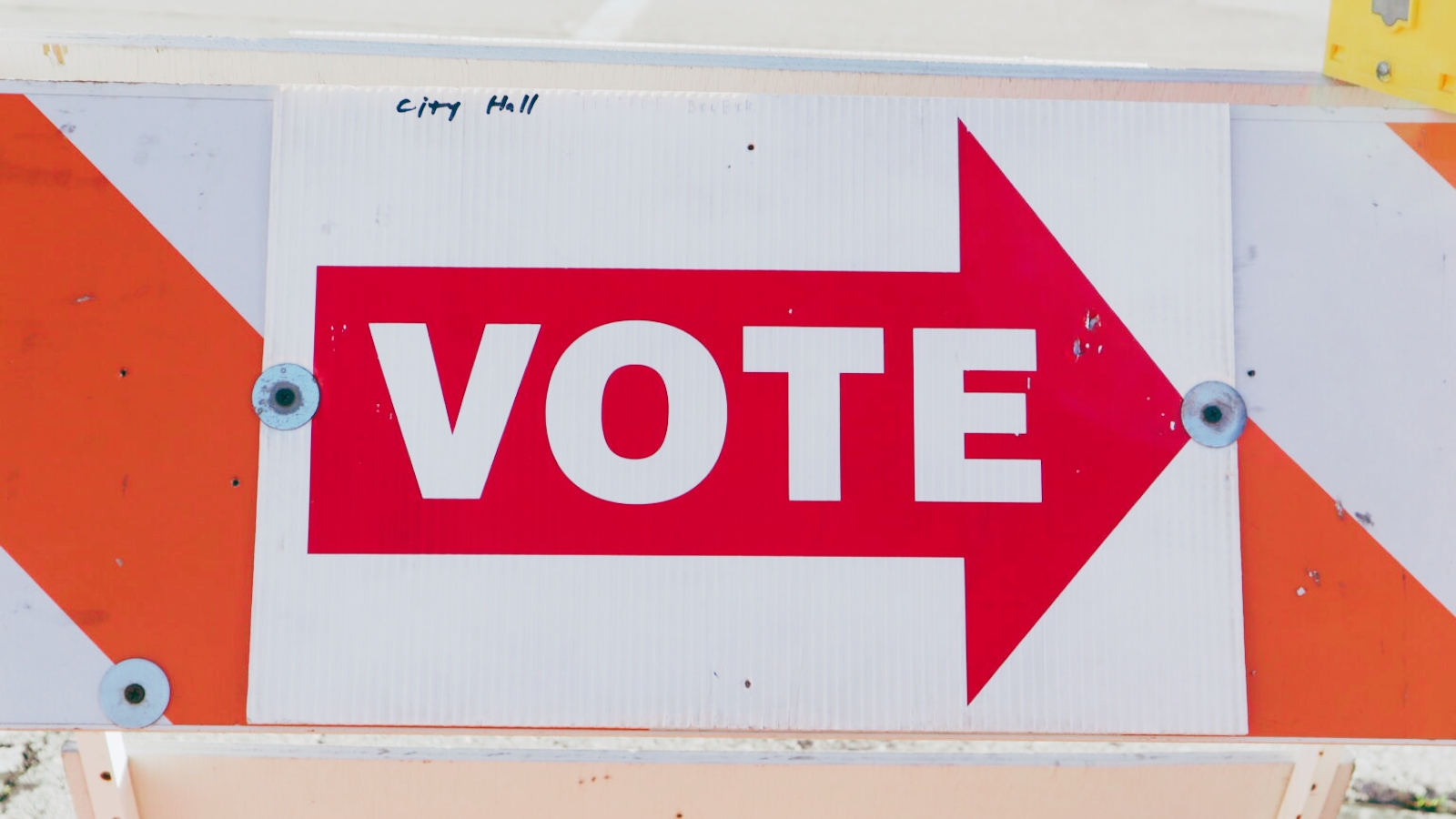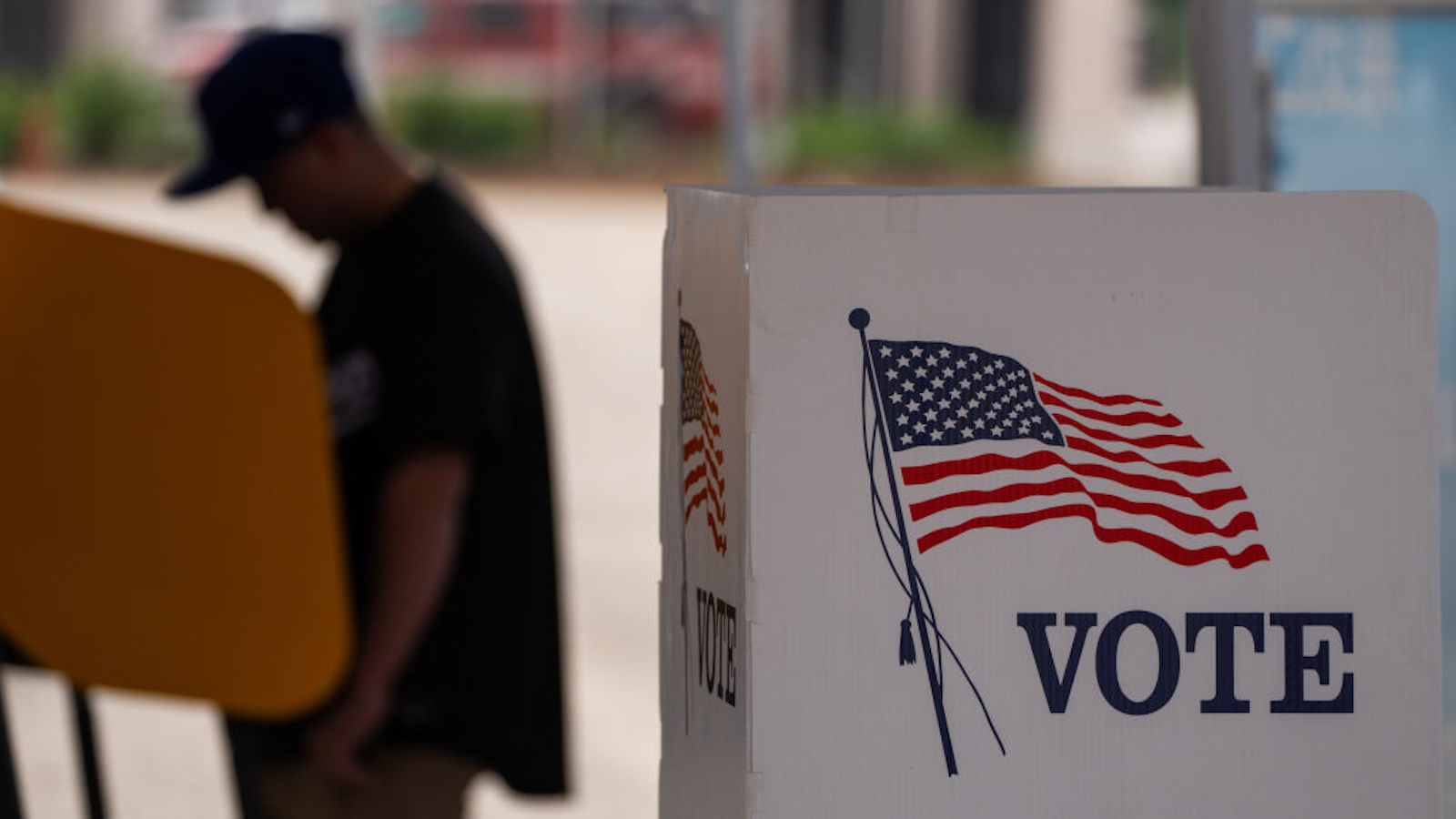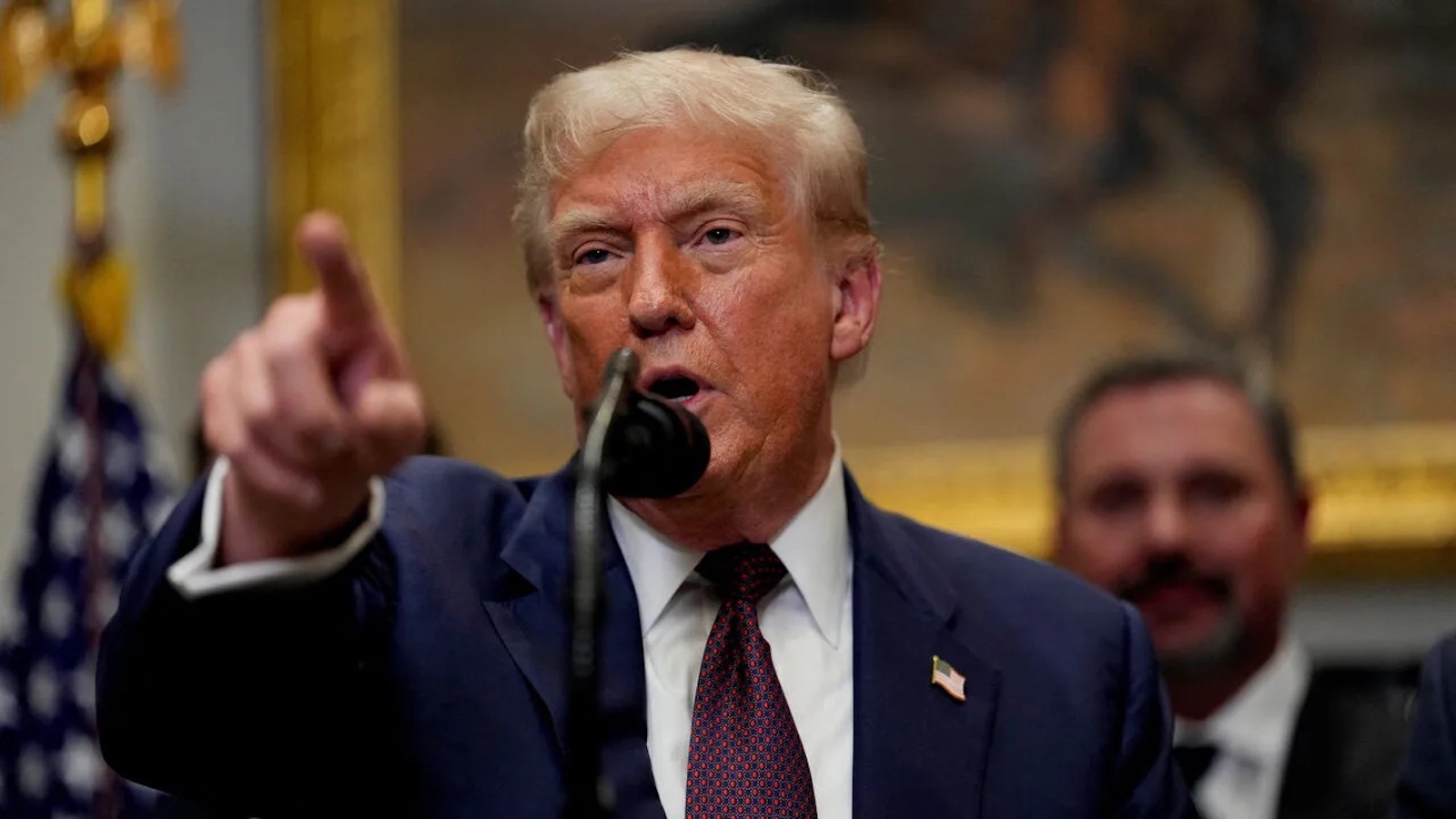
The Most Important Election of Your Life, Or Is It?
I wake up every day and am inundated with the majestic Rocky Mountains in my front yard. They are the dominating feature of the place I live. Everything I know in my life has been in orientation to them. Whether it is the waters of the trout streams that fill my summers, the cold air across my face on the top of a ski run, or simply the ever-present appearance of them in daily life, the mountains dominate my life experience. There is a comfort in knowing that they don’t change much; that the familiar trails and creeks will be there next summer and that I don’t have much to say about their location, size, or evolution. Their immovability is comforting. They keep my life consistent and add a richness to it because of their existence. I am thankful I don’t have to do much to them—they exist and I exist alongside of them.
Every few years the election cycle of the United States kicks into its money lavished bombardment of the American people.
We are sold the illusion that our vote will be the difference maker in saving the republic or moving the progressive needle closer to our utopian ideals. We collect ourselves in tribes, fill our minds with the echo chambers that affirm our biases, and march off to the polls, assured that we are the modern revolutionaries in the inherited line of the Founding Fathers. We stand self assured that our votes matter and we help usher in a peaceful revolution, destined to make the country we live in a better place; created in our image.
Like many, my life has taken a cynical twist in my thinking about politics over the last 20 years. The landscape of my adulthood has included an impeachment of a president, not for Constitutional malfeasance, but for getting a little frisky with an intern. We watched buildings be destroyed on live television, only to see our politicians enter into an endless set of wars all across the world. Sending young, idealistic men and women into far flung corners of the globe to defend our version of “democracy.” (Lucky them.) I have been told by judicial edict that the government has the legitimate mandate to make me purchase health insurance from, get this, the same companies that made it so unaffordable in the first place because of other government interventions that it required another government intervention.
I have been told for as long as I can remember voting (the 1992 election was my first) that this is the most important election of my lifetime. Every year, I say the same thing, “I’m not falling for your nonsense again this time.” I have made efforts over the years to silently protest voting. I don’t typically vote for president. (That office needs no affirmation from me of its monarchical status.) I don’t vote for state ballot initiatives. (What the hell are representatives for if we are all going to just decide the hard stuff for ourselves?) I don’t typically vote for federal senators. (I realize there’s an amendment to the Constitution that makes that legitimate, but the office should be one of temperance, and democracy is anything but temperate.) I do vote for down ballot offices like federal representatives, state house members, governor, dog catcher etc. They still seem like people that are legitimately close enough to my sphere of living that their decisions might have an impact on my daily life—and I may want a say in their decisions via my vote.
Most years it seems like the right kind of protesting.
I have as much right to not vote as someone else has to cast a ballot for anything they want. I am generally satisfied that I am participating in the way most consistently in alignment with my philosophical viewpoint. I feel very comfortable in the libertarian line of thinking that politics is relatively useless and that it is much better to have relationships with people that are not tribal in nature. I think the ideas matter more than the seemingly mathematical irrelevance of voting. So a good beer and a discussion about a philosophical concept with friends who don’t see eye-to-eye with me is a much more effective methodology of living harmoniously with others than voting for, or more cynically, donating to, some bozo I’ll never meet or have lunch with.
This year, I have to admit, I was suckered into it all again. I fell for the trap and believed that while other years were different and less consequential, this one was the big kahuna—it really was going to be the most important election of my lifetime. If the right team didn’t win, the empire, I mean the republic, was over. So I did my duty. I voted for anything that was on the ballot. I tried to do my research. I wanted to make sure I was giving an educated consent to those I was asking to represent me. For a moment I felt good about that decision… until election night. In came the results, out came my old habits of rooting for a team. I jumped in and bought the narrative that everything was on the line and I had to participate in the last line of defense for my liberty. (Colorado, the state where I live, was decided about 14 seconds after the polls closed.)
I woke the following morning and went to work—disgusted with myself for buying in again. It became apparent through the evening and into the next morning that what was happening was so behemoth in nature that no one was going to ever really know the real results—or to be more specific, if there were any real results to know. As I reached for my tinfoil hat, I wondered aloud if we were just all in some kind of Truman Show theater. The deal was going to be done—the orange man was not going to be allowed to stick around, and not by the American voter necessarily, but instead by much more influential and embedded people than myself.
I’m not saying President Trump didn’t lose, but I am not sure the American public even understands the game that is being played.
It rattled my sensibilities and affirmed in me something I have been feeling for a long time. If the margin of error in any election is a few million votes, and that translates to 1 or 2 percent of differential, then what we are buying into is far too large to be something I have ANY say in. We as the American people were investing so much hope into someone we have no chance of ever meeting or talking to. (Regardless of if you were invested in Biden or Trump.) We are rooting for fictitious characters that match our self-implied vision of our politics. Was Trump really a Jeffersonian Constitutionalist? Was Biden really the leftist revolutionary that was going to usher in the Marxist revolution of America? Neither were true reflections of those men—and if Trump or Biden were the last hope for the Republic based on our predisposed biases, then the United States was in significant trouble long before this election. If we are only ever one election away from losing our liberty, then shame on us.
Which brings me back to my mountains. I realized what I have been feeling in politics is akin to heading up to the hills by my home with a spade shovel and believing that if I could work hard enough, rally enough workers into the concept, and eventually move the Rocky Mountains. The image is ludicrous. I couldn’t, with all the machinery available to me, and all the people I could rally or pay, make a dent in my lifetime in the mountains of Colorado. The American empire has become so massive that changing it in its current format has become impossible. The die is cast and the trajectory is in one singular direction regardless of the election winners—big, overwhelmingly large, government is here to stay. Vote for who you want, but expect nothing less than for government to be on the upward trend to largeness.
Consider these easy-to-Google facts:
- 1 Vote is equal to 1/170,000,000 (winning the lottery is easier than having your vote matter in a national election).
- The United States federal government is the largest government in the history of the world. Bigger than the Ottoman, Roman, Greek, or British Empires.
- Pre-COVID numbers in 2019 put the national debt at $69,000 per person. By all accounts that number will double in 2020 because of the “COVID Stimulus.”
- Each American is represented in this ratio: 1 federal congressional representative to 750,000 people.
- Each American is represented in the Senate in this ratio: 1 senator to every 3.6 million people.
- The average American commits 3 felonies a day without knowing it because the federal regulatory code is over 70,000 pages.
- 4.5 million employees work for the federal government including the military. (Walmart, the nation’s largest employer, has about 1/2 that number of employees worldwide, 2.2 million, and of those, 1.5 million are in the US.)
- The American religion of State Worship is alive and well, regardless of the chowderheads that we “elect” every couple of years.
This realization tends to make me frustrated and angry that we live in such a disguised system. We love to talk as if we are free people, inheritors of the American rebellion and ideals of liberty and self sufficiency, but we are a far cry from it. We have continuously given the president more power. So much so that it is now to the point that we have a nice contest every four years to pick our monarch. Congress is powerful enough to cause trouble for the American public with the laws they do pass, but they will run as fast as Forrest Gump to abdicate their constitutional responsibilities at any and every chance they can. (They wont dare pass a law about abortion or marijuana or authorize war—leave that to the black robed oligarchs.) The system is already so large that no matter how many nice platitudes we say about the Constitution or the Declaration of Independence, those ideals are long gone. We live life in a system of power, masquerading as a place of freedom. If we are honest, we have to ask permission for just about anything we would choose to do in our living: careers, family, education, financing, property use etc. The idea that some dynamic character would come along, to be elected by the people, to change the fixed course of government power is a fool’s errand.
So it is with that bright and cheery outlook that I have begun to question if there are any positive spaces I can endeavor into with what liberty I am still graciously allowed to exercise. The analysis is more encouraging than the bleak horizon I have been describing. The conclusion I have come to is about simplification. In the most basic of ways to describe it, we only have the chance to revolt locally. We cannot continue to hope that someone at our state level, let alone in Washington, will be a liberty-minded messiah of government. There are no intellectual heirs to Jefferson who can win a national election. Localization of policy and politics is our best hope to unwind the worship of the state. With that backdrop, I generated a list of things that I am going to use in my daily life to reduce the influence of national politics on me and questions that will hopefully incite healthy provocation amongst my family and friends. Perhaps you will see some opportunity in them as well.
- Have lunch with the mayor or council member of my town or city.
- Meet with the school board member who represents my part of the district for breakfast or lunch.
- Read my local land use code and attend planning commission meetings.
- Have a beer with someone I have not had a political discussion with and ask them what they think about the preamble to the Declaration of Independence.
- Ask people in natural conversation about the state of our country, why the grammatical error exists in the way we say “The United States is,” instead of “the United States are.”
- Learn the name of my state representative.
- Take my kids to meet a county commissioner.
- Ask people if they know what nullification is.
- Ask friends and family if they understand the 10th amendment.
- Ask people what their thoughts are about secession—and study its viability myself to understand its possibility.
- Discuss natural law and its impact on my daily life with an apolitical friend.
My hope in taking these actions in my own life is an attempt to make national politics more like the mountains I live by. While they are immovable and unchanging in their course, perhaps I can localize my politics enough to make the federal government irrelevant. If I involve myself in things on the local level, perhaps the people who are elected will be more in line philosophically with the idea of liberty if they are asked what they think of it and how they would govern by it. I think the outcomes in my town, and by proximity my life, could be a lot different if the politicians and bureaucrats I interact with have to see me in the local tavern and justify their decisions. This course of action seems more plausible for positivity than the falsely intimate interactions I am “allowed” to have with the political sub-deities sending me a mailer from far off Washington to ask for money every election cycle.
Free the People publishes opinion-based articles from contributing writers. The opinions and ideas expressed do not always reflect the opinions and ideas that Free the People endorses. We believe in free speech, and in providing a platform for open dialogue. Feel free to leave a comment.



